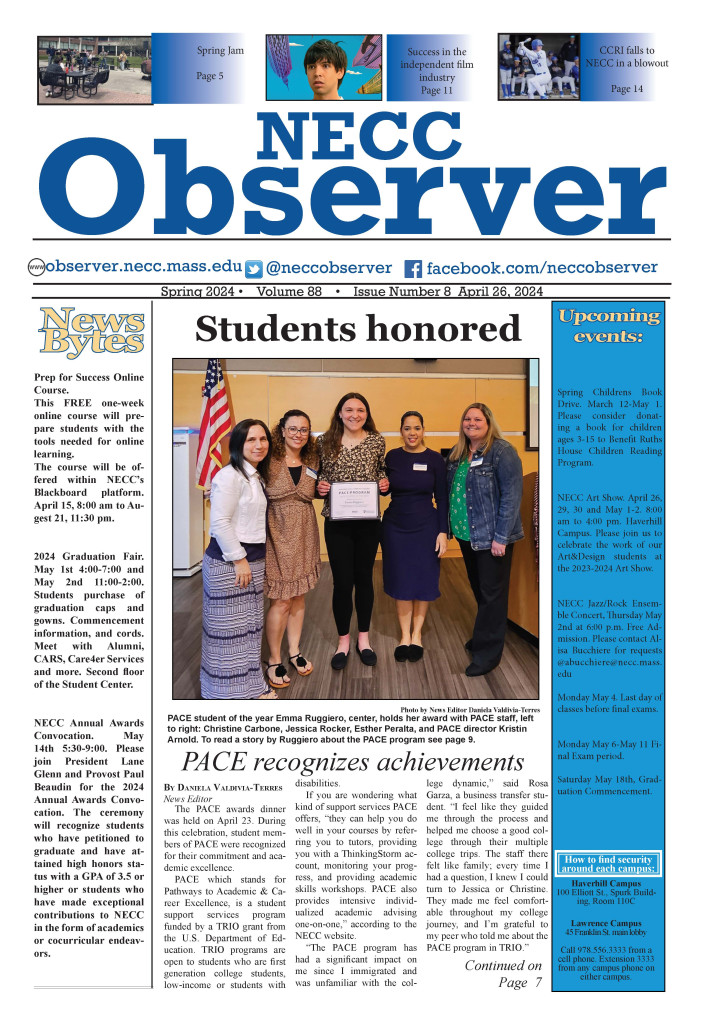The end of the semester is nearing faster than you might expect, that also means the process of transferring is underway.
For many students the spring semester is when they start looking to transfer to a four-year school after finishing their associate’s.
Attending a community college, such as Northern Essex is a great way to save money and to determine your major before going for your bachelor’s, and luckily there are some great programs that are available to help.
Some of these programs include the Massachusetts Independent College Guarantee which is a partnership agreement between NECC and private colleges and universities in Massachusetts.
After obtaining your associates at NECC you then would apply to one of the private colleges on the list and would be guaranteed admission.
The eligibility for a student must be an associate degree from a community college and a minimum GPA of 2.5. The other option is the Mass Transfer Pathways which has three pathways you can choose from to save up to 40% on your bachelor’s degree.
Shakira Andino, an advisor at NECC encourages students to attend community college then transfer.
“It’s the same education, at a better cost. You have more freedom to live your life at a four-year school, but you learn to manage your money at community college. There’s such a stigma to community college, but it’s up to you to get the work done.”
Some tips she would give would be to think about whether you want to be close to home and to visit their campus to see if you find it and the campus’s surroundings comfortable.
Aryanna Poirier recently just transferred to UMass Lowell after attaining her associates in psychology.
“I wanted to transfer to UMass Lowell because I knew people who went and loved it, and I knew that their psych program was good. It was also relatively close to my residence which was a plus!”
Some advice she would offer would be to get in touch with your advisors. “Get in touch with their advisors, both from NECC and from UMass Lowell as soon as possible. They’re there to help you, and most of them are wonderful at their jobs!”
Some other notes of advice are to know when deadlines are and what they’re application process is like as it may differ from each school. The transfer programs can be found on the NECC website under the learn tab.
Transferring schools shouldn’t have to be difficult. Just make sure to use your resources and go wherever you think is the best fit.

